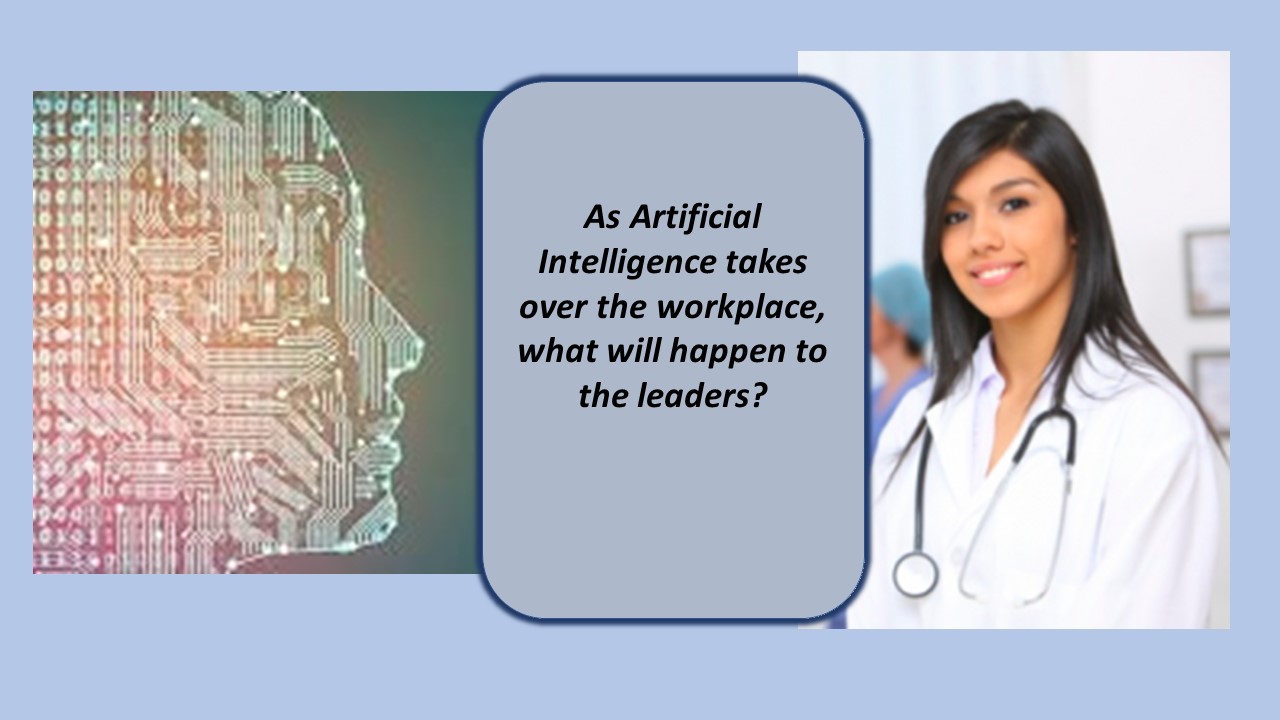By Thomas Davis, DNAP, MAE, CRNA
Follow @procrnatom on twitter
The exponential growth of AI (artificial intelligence) has proven that computer-driven software and robotic hardware are the future for business and industry, including healthcare. Factoid: People cost a lot of money and a growing number of jobs can be done better by computers or robots than by expensive humans. Replacing us with AI is a no-brainer. Writing in ddiworld.com, author Menggiao Liu, Ph.D. notes that by the end of 2020 five million jobs will be replaced by technology and that by 2055, fifty percent of workplace activities will be automated. From trading online to driving driverless cars, to robotic assembly lines, the need for human decision-making and skilled labor is vanishing like a wave at high tide washing up on the beach.
Our healthcare industry has always considered itself immune from the threat of job loss due to technology; however, that will rapidly change over the next decade in a number of ways. Much of it is already evident in the places you work. As scheduling becomes automated, fewer office staff will be needed to coordinate patient visits. Electronic records that feed into the billing department will continue to reduce the need for medical coders. AI analysis of patient records will detect changes in the patient’s condition early in the hospital stay and recommend treatment long before the person becomes seriously ill. With AI driven protocols, the length of hospital stay will be shortened as will the need for nurses to staff the diminished patient load. As AI proves its ability to read tissue slides and X-rays faster and more accurately than pathologists and radiologists can, fewer physicians in those specialties will be needed. Even the field of anesthesia will be affected by technology as AI uses pharmacogenetics to prescribe and administer the perfect anesthetic based on the patient’s specific gene composition.
The transition from a human to a digital workforce raises the question,
“What happens to the leaders?”
Those who have an eye to the future believe that leadership will always be essential. Traditional leaders focus on getting the team to do tasks that AI and robots will do in the future. Leaders of the future will focus on connecting one on one with workers and forming an important bridge between those who directly serve the clients and upper level administration. Moving into the technology-based future, traditional leadership will transform into a new style that welcomes and capitalizes on technology while maintaining a focus on the so-called “soft skills” that the computer lacks.
Technology, including AI, is here to stay and institutions are investing millions of dollars to position themselves ahead of the competition. Employers expect their leaders at all levels embrace and utilize the new technology to the fullest extent of their capability. Moving forward, it is essential to leverage the things that AI can do better than human workers.
What AI does best
Gather data AI isn’t limited by the time and hassles of a manual literature or data search. It can connect to every article ever written on a subject and collect large volumes of information in a short period of time. Likewise, AI can filter information and gather data on a specific patient population or disease entity and sort data as directed.
Analyze data In 2017, scientists at Mount Sinai trained AI computers by feeding 700,000 patient records into the system and then allowing the program to analyze and make conclusions. They found that AI was very good at predicting disease including psychiatric disorders, in their patient population. Similarly, the TREWS system at The Johns Hopkins uses AI in their ICU units to detect the earliest signs of sepsis, triggering treatment before the disease becomes life threatening.
Interpret results Lab, X-ray and pathology findings have traditionally been reported as facts and reported as real numbers or descriptions. AI looks at slides and images, describes what is seen and then makes a diagnosis. In addition, AI can look at trends and predict future diseases.
Recommend a course of action Building upon interpreting results, AI takes the next step and recommends the treatment of choice based on best practice guidelines.
Implement a course of action Depending upon the nature of the disease, AI can put recommendations into action by making follow-up appointments or scheduling future treatments with the proper specialists.
What Humans do best
Never fear. R2D2 isn’t replacing you with its clever technical achievements, but you will have to compete to stay in the game. Those who wish to emerge as the top leaders will need to focus on the human aspects of the job. Leaders must demonstrate the instinct for what clients want from the organization and what workers need in order to ensure their continued engagement and loyalty. Your job security will depend upon your skills in the following areas.
Emotional intelligence As noted on Forbes.com by author Falon Fatemi, emotional intelligence starts with the ability to understand and control our own emotions followed by the ability to recognize, understand and influence the emotions of others.
Adaptability Computers are programmed, whereas, people can sense their environment and the reactions of those around them. As we are bombarded with fresh information, leaders must be able to capitalize on opportunities and learn from mistakes. Being willing and able to change course based on new data will be a valuable strength.
Vision As new technologies are developed in a parallel fashion, lasting leaders will be able to assess many different platforms and establish a vision that combines several modalities; and they will do so in a manner that best meets the expectations of the client base. Mission statements will be revised to address needs as seen through the eyes of the consumer.
Professional development A database can store information related to continuing education, but it takes one on one interaction with a worker to learn what is important to him/her and develop a plan for personal growth. People mentor people and AI will have difficulty functioning as a counselor or a coach.
Humility AI is what it is; highly intelligent but programmed, sterile and lacking emotion. Admitting errors and admitting that others may know more than you do about a specific issue introduces a human emotion that computers can’t match in the high-tech workplace.
Feedback Computers spit out numbers and report discrepancies but lack the ability to determine the cause for non-compliance or help an individual chart a course to correct a problem. When it’s time for the boss to have a difficult conversation with an employee, human interaction is essential.
The workplace of the future will be rich with technology and have instant access to large volumes of information. Algorithms will quickly assess data and either suggest or implement an appropriate action. Many of the hands-on tasks that were historically done by workers, such as scheduling appointments, billing for services, or ordering supplies will be automatically done by computers. As the nature of the work shifts, so will the role of the leader. Rather than competing with AI, a Transformer will focus on the elements of leadership that that a bot cannot; understanding, motivating and connecting with clients and workers.
Tom is an experienced leader, author and requested speaker.
Contact Tom for an appearance at your next meeting.



